-
Objectives and approach
Objectives
The RTB-ENDURE goal is to contribute to improved food security for RTB-producing communities in East Africa, including producers and other stakeholders along the value chain.The specific objective is to improve food availability and income generation through better postharvest management and expanded use of RTB, based on: (1) postharvest and processing technologies; (2) value chain development; (3) capacity development.
In particular, the project will test and validate technical, commercial and institutional innovations for achieving:
- Decreased RTB postharvest losses;
- Increased shelf-life of RTB crops;
- Improved processing of RTB crops;
- Increased income from RTB crops and their products, including livestock, for rural producers;
- Increased participation of women in higher and more profitable levels of the value chain and more equitable distribution of benefits between men and women in the community.
Approach
RTB-ENDURE addresses postharvest management of four different RTB crops, namely potato, sweetpotato, cassava and banana.The project lays firmly on a multi-stakeholder approach where Research and Development (R&D) organizations and value chain actors work together to jointly identify, assess, select and test best-bet options for expanding utilization and reducing postharvest losses of selected RTB crops. By adopting and adapting the Participatory Market Chain Approach (PMCA) developed by CIP and through carefully facilitated processes, the project’s research teams test and validate postharvest innovations that have the greatest potential to satisfy food consumption and income generation needs.
RTB-ENDURE has been designed as part of RTB Theme 6 efforts to “Promote postharvest technologies, value chains and market opportunities” and presents strong linkages with the value chain development efforts of the CGIAR Research Program on Policy, Institution and Markets (PIM).
-
Implementation
It is possible to identify two main phases of RTB-ENDURE implementation: a “preparatory phase” and a “research implementation phase”. The first year of the project can be referred to as “preparatory phase”.
The preparatory phase has primarily entailed the establishment of crop specific research teams, a preliminary identification of the postharvest innovations to work on, a validation of the proposed innovations and the selection of the most promising ones that will be tested and validated during the research implementation phase. Furthermore training and capacity building activities have been conducted to strengthen the required capacities of the different teams in order to successfully contribute to achieve the overall objectives of the project.
During the project’s inception workshop in March 2014, the participants were facilitated to form crop specific research teams (potato, banana, sweetpotato and cassava) for jointly identifying some postharvest innovations with high potential to contribute to the project objectives. The different teams included representatives of various CGIAR (CIP, IITA, CIAT, Bioversity International and ILRI) and non-CGIAR potential partners (CIRAD, NARO, MAIF, Makerere University, NGOs, private sector, etc.). Each team, taking also into account the outcomes of a planning workshop held in mid-2012, selected one to two options and developed short proposals for undertaking scoping studies that would assist in exploring and validating the feasibility, likely adoption and potential impact of the proposed interventions.
Following ad hoc facilitation (e.g., training sessions on gender responsive market studies and analysis) and based on the results of the scoping studies, the four teams developed and submitted seven business cases for research funding.
Even though continuous support has been provided to the different teams in order to help them strengthening their proposals, during the preparatory phase the project has adopted a rather competitive approach and the teams were aware that only the most robust and convincing options would have been funded. The business cases went through rounds of internal (by the project management and the project’s Process Committee that was established at the inception of the project in order to guide the process of developing and selecting the options for subsequent research implementation) and external reviews (by leading experts in the area of RTB postharvest and value chains). Finally, four research options have been selected for funding, one for each crop.
The selection of the four research options to be funded has officially closed the preparatory scoping phase, and marked the beginning of the research implementation phase (a meeting-cum-training workshop was organized to officially launch the new phase). The different team members had worked together for a number of months for jointly identifying and analysing new market opportunities and the most promising innovations. The scoping activities and the development of the business cases had contributed to validate (or otherwise) some of their preliminary assumptions and strengthen their social capital and capacity to conduct research in partnership. By the end of the first year, all research teams had been brought up to speed about the expected project outputs and outcomes and their capacities to implement the PMCA methodology and mainstream gender in their research activities have been strengthened. The four teams have now confidently moved into the research implementation phase where they conduct on the ground testing and validation of selected innovations for improved postharvest management in Uganda, with evidence of relevance for other countries in East Africa. It is expected that by the end of the project the different team will be able to provide evidence of their proof of concepts and of the technical feasibility, economic viability and social acceptability of the proposed innovations.
-
Banana sub-project
Reducing postharvest losses and promoting product differentiation in cooking banana value chain
The cooking banana value chain is characterized by high postharvest losses due to short shelf-life of bananas, highly seasonal production and poor postharvest handling. Furthermore, there are opportunities to promote product differentiation through different presentation forms of bananas and new marketing approaches. This sub-project will i) explore ways to reduce postharvest losses and even out annual supplies through use of diverse varieties and sucker staggering; ii) investigate options for upgrading storage, transport and marketing in response to changing consumers’ preferences; iii) study the feasibility of introducing a weight-based pricing mechanism; and iv) strengthen capacities of value chain actors to respond effectively to emerging market opportunities.The research team is led by Bioversity International and comprises IITA, CIRAD, NARO, the Ssemwanga Centre for Agriculture and Food Ltd., Kaika InvestCo, Mbarara District Farmers Association (MBADIFA) and other value chain actors in Isingiro, Rakai and Kampala districts.
For further information please contact the Principal Investigator, Dr Enoch Kikulwe (Bioversity International)
- Enoch Kikulwe (Bioversity-Uganda): e.kikulwe@cgiar.org

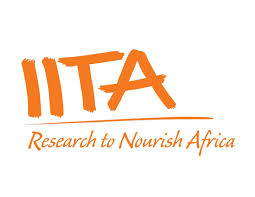



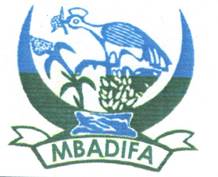

-
Sweetpotato sub-project
Improving the utilization of sweetpotato and other root and tuber crops residues for pig feeds
Feeding is one of the main production constraints for smallholder pig farmers due to the seasonality, high cost and poor quality of feeds; coupled with limited knowledge of supplementation strategies. As a coping strategy, farmers extensively use crop residues, grasses, weeds and kitchen leftovers to feed their animals. Sweetpotato vines are the most commonly used fodder but they are highly seasonal and perishable. Simple silage making for feed conservation combined with strategic supplementation is an easy and affordable option for pig feeding during periods of feed scarcity and will contribute to reduce wastage of sweetpotato residues. This sub-project will i) investigate options for silage making and supplementation; ii) identify models for proper organization of value chain actors for production, conservation and marketing of sweetpotato-based feeds; iii) strengthen the existing linkages between pig farmers and sweetpotato traders; and iv) build business capacity for profitable silage making and pig raising.The research team is led by CIP and comprises the International Livestock Research Institute (ILRI), NARO, VEDCO, CHAIN-Uganda, Iowa State University, Makerere University, Uganda Martyrs University, Pig Production and Marketing Ltd. and other value chain actors in Masaka and Kamuli districts.
For further information please contact the Principal Investigator, Gerald Kyalo (CIP)
- Gerald Kyalo (CIP): gerald.kyalo@cgiar.org



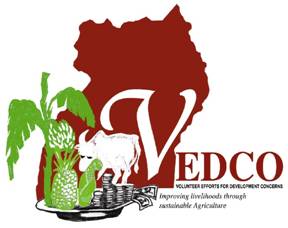
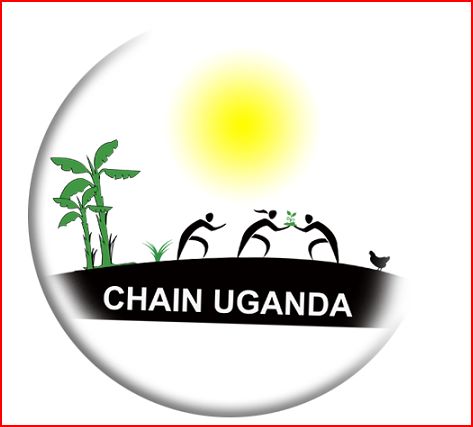

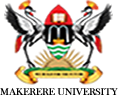
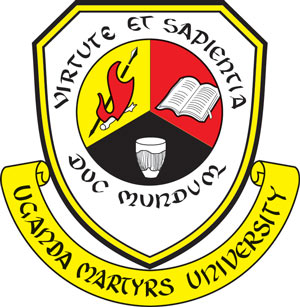

-
Potato sub-project
Postharvest innovations for better access to specialized ware potato markets
In eastern Uganda there are two potato cropping seasons. The market supply is highly seasonal, with period of gluts and scarcity and, therefore, high price fluctuations. The team aims at exploring the opportunity to take advantage of the higher price during the off-season by expanding the cropping period and introducing storage technologies. This will ensure higher and more stable income for small-scale farmers and consistent market supplies. In particular, this sub-project will i) assess effect of variety, local climatic conditions, pre-harvest and harvest practices on storability of ware potatoes; ii) exploits varietal differences in maturity and dormancy to prolong harvest and marketing periods; iii) strengthen business skills and collective marketing; and iv) identify gender-sensitive approaches to ensure gender equity in exploiting new market opportunities.The research team is led by CIP and comprises NARO, Self Help Africa, Makerere University and other value chain actors in Kapchorwa, Mbale and Kampala districts.
For further information please contact the Principal Investigator, Dr Monica Parker (CIP)
- Monica Parker (CIP): m.parker@cgiar.org


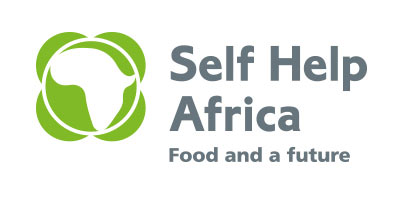

-
Cassava sub-project
Extending the shelf-life of fresh cassava roots for increased incomes and postharvest loss reduction
Cassava roots are characterized by very short shelf-life due to rapid postharvest physiological deterioration (PPD). This results in substantial level of price discount during marketing. Innovations that prolong the shelf-life of fresh roots are demanded by farmers and traders to reduce postharvest losses, relieve marketing pressures and target new markets. Using lessons learnt from West Africa and Latin America, the project will assess the feasibility of introducing two shelf-life extension technologies, namely high relative humidity storage and waxing of the fresh roots. This sub-project will i) identify the market segments for fresh cassava and best marketing models ; ii) assess PPD of different varieties and study the effectiveness of the shelf-life extension technologies; iii) investigate the effect of the treatment on eating quality and safety; and iv) promote South-South collaboration and knowledge sharing for capacity strengthening.The research team is led by IITA and comprises CIAT, NARO, Africa Innovations Institute (Afrii), International Institute of Rural Reconstruction (IIRR), Makerere University, Gulu University and value chain actors in Masindi, Kabarole and Kampala districts.
For further information please contact the Principal Investigator, Dr Adebayo Abass (IITA)
- Adebayo Abass (IITA): a.abass@cgiar.org




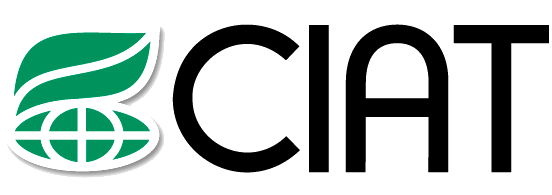

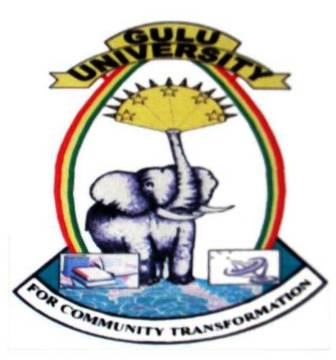
-
Gender strategy
Subtitle
Text by Sarah Mayanja -
Project locations


-
Project documents
General project documents:
Funded research options:
Non funded research options:
-
Reports and publications
Subtitle
Under construction -
Project staff
Project Management:
Dr. Diego Naziri – Value chain and Post-harvest Specialist, CIP & Project Leader, RTB ENDURE – Kampala, Uganda
d.naziri@cgiar.orgSarah Mayanja – Research Associate, Value Chains and Agriculture Marketing, CIP & Deputy Project Leader, RTB ENDURE – Kampala, Uganda
s.mayanja@cgiar.orgGodfrey Mulongo – Monitoring & Evaluation Specialist, CIP SSA – Nairobi, Kenya
g.mulongo@cgiar.orgDr. Netsayi Mudege - Gender Research Coordinator for the CGIAR Research Program on Roots, Tubers and Bananas, CIP SSA – Nairobi, Kenya
n.mudege@cgiar.orgConsultants:
Sara Quinn - Communications Specialist, CIP SSA – Nairobi, Kenya
s.quinn@cgiar.orgEsther Nakkazi, Freelance Journalist and SciDev.net representative – Kampala, Uganda
estanakkazi@gmail.com -
Project Steering Committee
Name
Institution - Position
Email
Dr. Graham Thiele
CGIAR - Director, Research Program on Roots, Tubers and Bananas (RTB)
Dr. Gordon Prain
CIP - Leader, Disciplinary Center of Excellence on Social&Health Sciences and Innovations Systems
Dr. Simon Heck
CIP - Leader, Strategic Program on Resilient Nutritious Sweetpotato
Dr. Adebayo Abass
IITA - Coordinator, Cassava Value Chain
Dr. Dietmar Stoian
Bioversity - Leader, Commodities Systems and Genetic Resources Program
Dr. Dominique Dufour
CIAT/CIRAD - Leader, RTB Theme 6 'Promoting postharvest technologies, value chains, and market opportunities'
Prof. Bernard Bashaasha
Makerere University - Principle, College of Agricultural and Environmental Sciences (CAES)
Dr. Ivan Rwomushana
ASARECA - Manager, Staple Crops Programme
Prof. Wilberforce Tushemereirwe
NARO - Director of Research, National Agricultural Research Laboratories (former Leader, NARO National Banana Research Programme)
-
Photo gallery
Under construction
-
Media coverage
Project seeks to add value to roots, tubers and bananas
Project to limit post-harvest losses in Uganda
Uganda selected as focus for project on root crops, bananas
New technologies for storing use of roots, tubers and bananas
New technologies for storing use of roots, tubers and bananas